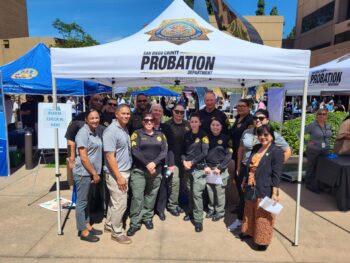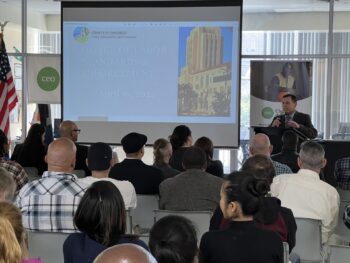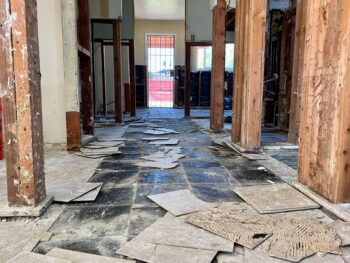Argentina is seeking justice for hundreds of victims of human rights crimes – many who have never been found – that occurred decades ago, with the trials expected to take many years.
Next month, San Diego County Deputy Public Defender Jesus Romero will join a small team of expert trainers in Argentina to help prosecutors, defense lawyers and law students learn trial skills in preparation for presenting these and other complex cases.
When San Diego County Public Defender Henry Coker heard Romero was invited to teach in Argentina, he was elated for him, on behalf of the entire department, but not surprised Romero was tapped for this important teaching opportunity.
“He’s probably one of the best public defenders you can find and he’s also extremely motivated to help — not only the common man in San Diego but also in other jurisdictions and countries,” said Coker. “He is helping to change the system in those countries. To an American his work sounds almost routine, because it’s the core of the justice system as we know it, but it’s not that way in other countries. Being able to confront and cross examine your accuser is a right we take for granted here. Even someone accused of the most heinous crime has a right to a fair hearing.”
Argentina is among the countries in Latin American that have moved only recently to a trial system like ours, with oral arguments from lawyers and a live presentation of evidence and witnesses.
Romero, a veteran public defender and fluent Spanish speaker, is an internationally recognized expert and skilled teacher who has been tapped on several occasions to help Latin American attorneys learn the art of oral trial skills and techniques. Last summer, Romero was invited to speak as a keynote speaker at a national conference in Mexico about transitioning to oral advocacy trials and the role of the public defender in the judicial system.
This year, he accepted an invitation to take part in a teaching opportunity as part of a prestigious Latin American oral trial think tank. He leaves in mid March for Argentina and will be teaching in two provinces for a week.
The Instituo de Estudios Comparados en Ciencas Penales and a law school paid for his airfare, lodging and meals. Romero said he was moved by the invitation because he wanted to be part of healing of the country by helping teach young lawyers and law students how to put on a winning trial case.
In the early 1960s and 1970s Argentina was governed by several dictators followed by a period of military rule known as the “Dirty War.” This period of political turmoil often ended in the disappearance, torture, rape, imprisonment, or deaths of activists, students and political prisoners. Now decades later, the judicial system is struggling to bring those who have been charged with many of these crimes to trial.
“The country is in better political shape now but they’re trying to bring people to justice and their lawyers are not trained in oral trials,” said Romero. “Like Mexico, they have been struggling with implementing a system of oral trials. However, unlike Mexico, in the last six or seven years, they have begun to focus on law schools to train new lawyers so they can learn at an early stage what is required of them.”
Romero said as a public defender, he felt he had to help teach the young lawyers about the role of the public defender as it pertains to human rights. Part of his duties will be to train prosecutors how to present their case in an oral trial. A career public defender, Romero said initially he found it an odd request, until he learned that these prosecutors were working on upholding human rights violations.
He will be part of an elite trial training team that includes an assistant U.S. Attorney and a judge from Costa Rica. The Argentinian lawyers are faced with cases involving common crimes, but also with missing people, torture, murders, and police, government and even clergy misconduct during the dictatorship, Romero said. Witnesses who were once threatened with harm if they spoke to authorities are now coming forward to testify about older crimes because they finally feel safe to do so, he said.
Prosecutors in Argentina receive routine theory-based training from national academic experts.
“Part of the reason I’m being invited is the apparent of lack training for public defenders and lawyers defending the indigent. They want me to help them develop a defense theory in cases where they may encounter 20-year-old eyewitness evidence against them, an alibi defense where the witness left a written statement but died 20 years ago, where records have been destroyed, or where false confessions exist,” Romero said. “They want to learn how to present this type of evidence to a three judge panel and how to do a cross examination of a witness or government expert.”
Romero was also asked to help the lawyers and law students put together opening and closing arguments and how to introduce or dispute scientific evidence such as DNA from bone fragments or other similar items of evidence.
Romero, 48, has worked a public defender for nearly 23 years, is an oral skills instructor in the United States, and has held many trainings in Mexico, Central and South America. Romero works public defense cases at the South Bay Superior Court including homicides, and drug and gang cases.





